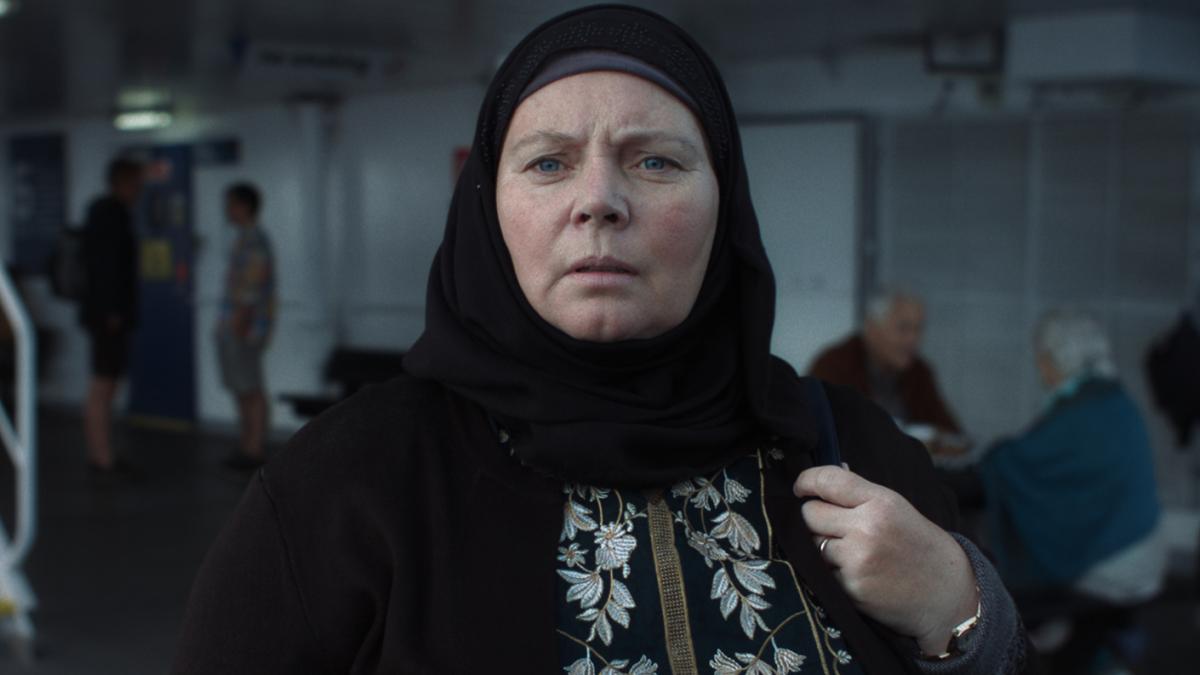After Love review: Joanna Scanlan is revelatory in this moving portrait of faith and marriage
Aleem Khan’s directorial debut is exploratory without being decisive, all anchored by Scanlan’s deeply sensitive performance

Dir: Aleem Khan. Starring: Joanna Scanlan, Nathalie Richard, Talid Ariss, Nasser Memarzia, Sudha Bhuchar, Nisha Chadha. Cert 12A, 89 mins
The most remarkable things in all of After Love are Joanna Scanlan’s eyes. She’s playing Mary, a woman mourning the death of her husband, Ahmed (Nasser Memarzi). Before their marriage, she chose to convert to the Muslim faith – to her, there was no greater proof of her trust and commitment. Her grief now condenses in those clear, glacial-toned orbs, as she’s framed by the white veil of her mourning clothes. It’s an image both beautiful and tragic.
Scanlan’s performance is revelatory, if only because audiences will be so accustomed to seeing her as the broad, comic foil in The Thick Of It, Getting On, or No Offence. Here, she remains quiet and soulful, as Aleem Khan’s directorial debut explores the intersection between faith and marriage, particularly where it grows thorny and complicated. After Love is exploratory without being decisive, all anchored by Scanlan’s deeply sensitive performance.
Soon, Mary discovers that Ahmed was conducting a long-term affair – a pain compounded by the fact this other woman, Genevieve (Nathalie Richard), did nothing to partake in his Pakistani culture, despite the fact they share a son, Solomon (Talid Ariss). As Mary sails from Dover to Calais to confront her – the same route Ahmed, once a ferry captain, would take – she sees the white cliffs start to crumble. Khan presents the film’s metaphors as wrought by the hand of a higher power. There’s a cruel, undeniable poetry to the way these women’s lives mirror each other from across the Channel. At different points, both pause to bury their faces into Ahmed’s old shirts, taking in his scent as some last, material reminder of his existence.
But it’s the differences between them that form the core of After Love. Mary has a whole speech prepared, which she’s meticulously practised in front of the mirror. But Genieve takes one look at her veil and assumes she must be the cleaner she’s hired – Islamaphobia, and particularly an intolerance of religious garb, is notoriously rife in France. But Mary decides to go along with the ruse, compelled to understand why her husband of many years couldn’t be satisfied by their love.

Genevieve is a slimmer woman prone to wearing open-collared shirts and tight jeans; Mary returns to the mirror to nervously poke and prod at the fat on her body. Against her wishes, Mary has remained childless; she fixates on the ways Genevieve has chosen to raise her son. Mary wanders idly through this foreign life as a mere observer, though Scanlan still lends a palpable, trembling weight to each moment of silence. She starts to see more and more of her own reflection in Genevieve. In the end, After Love isn’t about the lies that men construct, but about the relief of finding someone with whom to navigate your grief.



Join our commenting forum
Join thought-provoking conversations, follow other Independent readers and see their replies
Comments